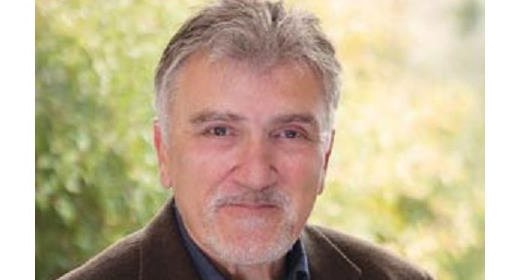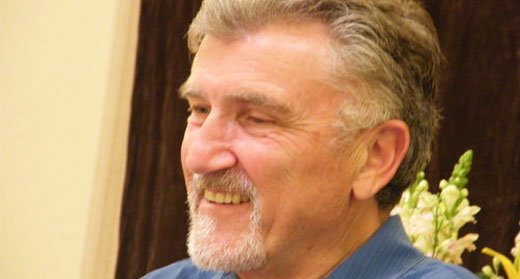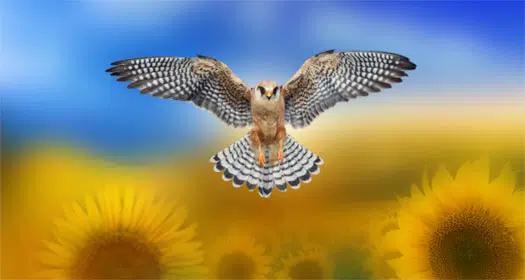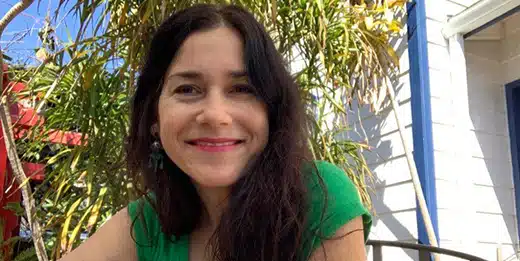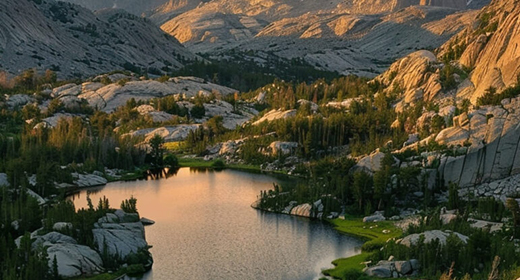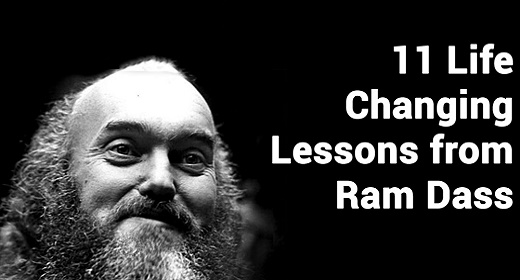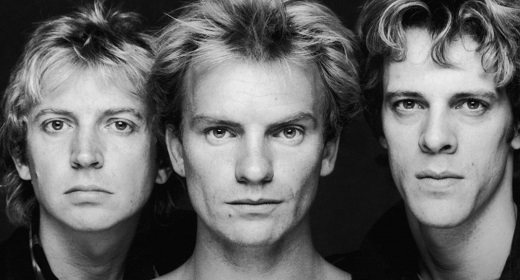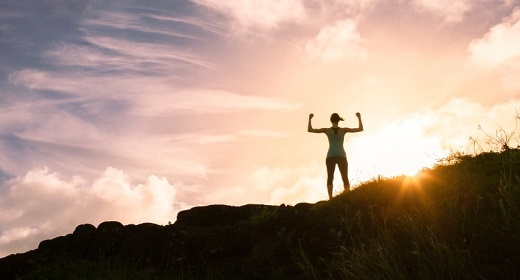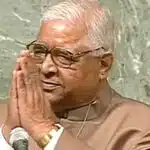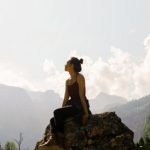Donna Quesada: And how do you find the balance between individual empowerment and healing, and the social work that you do? How does one, in general, find that balance?
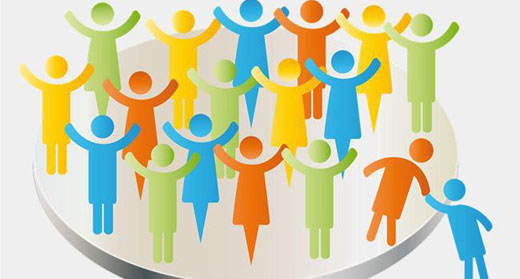
Seane Corn: Again, it depends on where they are on their path. Everything is about finding integration and harmony. If I know that I have a day that is very intense… where I’m teaching a lot and I’m going to have to pull out the extrovert part of my personality… because I’m naturally an introvert… if I know that my day is very yang based… masculine and active… my yoga practice has to be restorative—yin based. Calming. Anything that is going to bring me inward, so that I’m resourced and self-regulated to be able to show up in the world. I’m not going to do a yang practice on a yang day. Otherwise it will burn me out.
In the same way… Let’s say I had three children to raise and I have a full-time job. Odds are that it wouldn’t be appropriate for me to get on a plane and get out into the world and be of service to other people’s children, when maybe I’m putting my own children at risk. Because right now is not the time to do that kind of work. Maybe my service might have to be quieter. Maybe I donate money. Or stuff envelopes. Or make phone calls. Things that are going to be more in relationship to the whole of my life. Whereas, at another time… maybe the kids are grown up and more independent, and they are a little bit safer from just the harm of what it means to be a kid in the world… Maybe then, the person can turn to being more engaged. The answer to that is going to be “it depends.” For myself, this is my dharma. It’s my commitment. There’s nothing for me that interferes with my work… with wanting to be in engagement with the world. But at the same time, I have non-negotiables. I practice yoga every day. I meditate every day. I pray every day. I’m very conscious about my diet. A Vegan diet. Organic. I’m in therapy. I try to make space for my relationships, you know? These are the non-negotiables that I have. So, I can show up in service that is a little bit more sustained.
DONNA: And show up, you have! You’ve done so much work. Not only in India, but in Africa… What is the nature of your seva work? Will you share with us?
SEANE: It’s really evolved over the years. I was a frontline activist, back in NYC, in the 80’s and 90’s. I was very passionate and well-meaning, but in a lot of ways, ill-informed. And also, I hadn’t worked out my own trauma. So, I loved activism. I loved conflict. Because I got to scream and yell and rage. And what that was doing was discharging my internalized rage. And so, by yelling at someone else… by going power over, energetically, it helped me. The oppressed parts of my small self felt heard and felt seen. But it wasn’t actually processing my own trauma. So, activism like that, is not sustainable at all because you are not listening. You are not seeing what is in front of you. You are certainly not empathizing. How could I, when all I was doing was responding to the trauma in the world through my own trauma? So, hate was meeting hate. Fear was meeting fear.
So, for me, I had to do years of deep inner work, before I could get back into the world of being of service again. The way that I chose to do it when I got back into activism, was to use my platform as a way to raise awareness and funds… to be able to support grass roots organizations, both locally and internationally, so that they could serve their communities better than I could, of course, because I’m not in those communities… and, be able to help empower those organizations to be more effective and efficient in their offerings. This is with my organization Off the Mat and Into the World. We raised 3.5 Million dollars. We did projects in Cambodia, South Africa, Uganda, Haiti, India, as well as Ecuador, and Kenya. We did 23 sustainable projects, and really utilized that money well. The only problem was, as I matured in my own activism, I realized that in a lot of ways, it was a bandage on the wound.
What I really wanted to do was… How do we establish stronger leadership in the yoga community? To understand the way in which the difference between… How do I explain this? There is a mythology that we embrace within the yoga community. This idea of oneness. We say it all the time. “We are one… We are one.” And it’s true. Energetically, it’s true. But unless we unpack the differences and the ways in which we are not the same… we actually do a dis-service to the communities that are impacted by those differences. And I became really interested in… So, here I am, as a white woman going overseas, providing funding into communities that I don’t really understand. Cultures that have experiences, traumas, that me…as an American, could never understand. By being there and not unpacking the complexities, was I actually supporting colonization? Was I actually supporting dominance? Hierarchy? The answer, by the way, is yes. I absolutely was. And so, I thought, that doesn’t seem right.
DONNA: So, simply by not being up front about those differences, and putting them on the table…
SEANE: By not understanding it. By not doing the work within myself to understand the complexities. What does it mean, as a white woman showing up in these environments? How do I meet someone else’s trauma? I just don’t walk in as a white woman. I walk in with 300 years of oppression behind me. I walk in with white supremacy behind me. So, I don’t know how I’m being received. But odds are, I am being received through that lens. The onus is on me, as the activist, to recognize that of course I am going to be received in that way.
Therefore, I’ve got to be even more conscientious of how I show up… the words that I use. The way in which I align myself with organizations. Not just reach out and hand someone money. Because couldn’t that be denoted as saviorism? Instead, I’ve got to look at the systems that are set up… where you need to be putting in this money. Understanding those systems and working to dismantle those systems is really what activism should be all about. But before I can do that, I have to look at the way I perpetuate those systems. How I participate in those systems. And worst of all, how I benefit from them. And of course, I do. We all do. Unless you are not part of the dominant society.
And that became to me, critically important. If we are really going to embrace this idea of oneness, we have to first understand the ways in which we create separation. Heal those fractures. And see the way the system is there to perpetuate those fractures, and how the dominant society benefits from it. And to me, this became my Yoga. My activism today, is to build up leadership. To support other Yogis in the level of inquiry. And to provide the tools so they can step into their own activism in a way that’s more responsible, integrated and meaningful. And I think, with everything that is happening in the world today… absolutely essential. So that is one of the ways my activism shows up, is through supporting leaders. Supporting leaders on the margins, surely. Decentering myself. Using my platform to provide opportunities for other people who don’t get the same disability that I get. And modeling back to my community. Especially people who look like me or same economic class as I am. What accountability looks like and what tools we can use to move towards the process of self-responsibility that can lead to greater social change.
DONNA: Some of the social work that you do addresses women’s issues. This is one of the issues or causes that you have been a champion for. And you spoke a lot about the platform that you have as a woman. As a privileged woman in this country, I’d love to get your take on this, but on a bigger, more global level. There’s such an imbalance of masculine and feminine, globally. So much patriarchal history, that we can say is responsible for our global destruction, and many of the social issues, by extension. How do we begin to address that imbalance… masculine energy? And, what are your thoughts on that? How much of this destruction goes back to that dominance?
SEANE: So much. We’ve bought into the Patriarchy. The systems are designed to support the patriarchy. Again, Yoga means to come together and make whole. Our system is set up in a hierarchical power dynamic. There is power over and power under. Power over is dominance. Power under is oppression. But, it’s this power over… power under, that creates the separation… that is creating so much conflict in the world. And it’s very easy to say, “let’s dismantle the systems.” Let’s break apart the patriarchy. But, we’ve embodied the patriarchy. It’s in our cells. In the same way I inherited my curly hair. In the same way I’ve inherited my dislike for spicy food. It’s the same way I inherited misogyny. In my subconscious, it has influenced the way I feel about marriage. How I feel about children. How I feel about the roles that men and women play. I’ve bought into the binary of female to male.
All of this is so deeply engrained, that to me, it’s through the process of breath work and deep focus, that allows us to see and understand how deeply embedded that information is in our body, and how it comes up within the unconscious. So, I believe that we are all in this great trance, and brain washed, and there is a dismantling that we have to go through. It’s uncomfortable. It’s painful to have to look at who we are, what we’ve bought into, and what would it mean to actually change the paradigm. And change the paradigm, we must. And it doesn’t mean down with men. This is an archetype. I feel that the men in our world have been brainwashed, as well. But we do have to dismantle these systems of power. The systems are made up of people. Change the people and we change the system. So, I have to look into, where have I bought into the patriarchy? How has it served me to play small? How have I been developing my masculinity, as an archetype. How is it still patriarchal? How is my femininity still genderized?
And that is work one can only do individually. Unpacking all of that. And it takes time and it takes commitment and effort. But, I really believe, if we are going to change the world, we have to look at this. Otherwise, we keep succumbing to these internalized belief systems, that are keeping some in a lot of power and most with very, very little. Including women. Especially women of color.
DONNA: You started your work as a teacher in the 80’s… or was it the 90’s?
SEANE: I became a teacher in ’94.
DONNA: The Yoga world has become so popularized and mainstream in these last 20 years. How has it changed and what are your opinions on how it has changed? Has it been all good? Has it been turned into something that it’s not? What are your thoughts on this?
SEANE: Yoga, as you know, has its own creative force and flow. And it’s much bigger than all of us. And I really do like to believe that it’s in its own trajectory for evolution. And within that, there will be some funky stuff. And within that, there will be some brilliance. I know personally, that I have been part of the modification of Yoga. I’ve been part of the capitalization of Yoga. I have benefited from that commodification. Because when I became successful in Yoga, it was at a time before it reached mainstream. I was here in LA, and all of a sudden, the Yoga classes are getting flooded with people from the gyms who want to work out hard. And companies like Nike are coming to me to wear their clothing. That never happened before. But I was under no illusion. They weren’t coming to me because I was a great Yogi. They were coming to me because I was marketable. Because I fit a certain standard of beauty that was typical. Blonde, blue eyes, skinny. White.
Participating in that also means I’m accountable for the ways in which that standardization becomes perpetuated. I knew this going into it. And I was uncomfortable with it because I was an activist, even then. But I also knew that with those opportunities, there were also going to be moments like this… where I could speak about the greater truth of Yoga… where I could empower others to understand the complexities… I knew Nike, or these other companies… they would just hire a model. If they were going to hire anyone, I wanted them to hire someone like me, who is actually committed to this practice, and could try to change the systems from the inside out.
Things like no air-brushing. You are not allowed to air-brush any photograph of me. So, I have been aging publicly, for years. My body has changed publicly, for years. And I committed to that because I want people to see that the images that they often see are not real. They are not true. That was one of my forms of activism. Knowing that I was also participating in the commodification of Yoga.
But as a result of that, Yoga also became more mainstream. People who had never done Yoga were suddenly coming onto the Yoga mat. And I wanted them there… the ones doing the extra pushups… because that is who I was. I didn’t know if it would take five months or five years, but there might be a moment, if they commit to that… to the practice that… that they would be like me, in the fetal position, crying hysterically because all the tension was releasing out of their body. And I wanted to be there when that moment of surrender happened and they embraced the God within.
And so, for me, the mainstreaming was positive and exciting. And it’s also exploitive. It’s also fraught with problems. Inexperienced teachers being elevated on their platform because of the way they look. Like I was. But perhaps teachers that are unwilling to go that extra mile and dig deep into their own ego and their accountability in it. So, I’m very confident about the changes that are happening within it… what I see, right now. And again, it’s the magic of Yoga.
12 years ago, when I started to really integrate Yoga and social justice, we went on a deep dive to try to understand social justice. And understanding whiteness and racism and power and privilege. All of these themes. And there would be moments when I thought… Why? Where am I going with this? Suddenly, my class sizes are dropping in half because I’m talking about activism. When all I had to do was talk about weight loss, and I’ll triple my numbers. But, something was propelling me internally to keep getting educated and keep working with other teachers who actually have real skill when it comes to social justice… to help support me in my awareness.
And it wasn’t ‘till two years ago, with the election of Donald Trump, when people, the day after that election, were generally traumatized… reaching to Off the Mat… reaching out to me and saying, “what do I do with this?” How do I talk to my students? What can I do to make a difference in my community? Here is what this administration stands for. I want to support issues related to the environment. I want to support issues related to health care. Because I see that this administration isn’t supporting the things that I value. And I remember thinking, this is what I’ve been training for. This is what my own personal evolutions were inviting me into… to be in preparation to meet my students. To say, “let’s get to work. Let’s look at the ways, as a society, that we created this moment in history. And who benefits from it? Who hurts from it and how are we a part of that system?”
And I’m seeing so many leaders. Ordinary moms and dads and people who are on the mat a few years ago… suddenly out there, voting, protesting, engaging politically, and seeing that it’s not separate from the Yoga they have been doing for years and years. It’s just more complex, but no different. And if this is the direction that the Yoga community is going in, then we are no longer a community, we are a constituency. And we can impact policy. We can influence politicians. They may not care about our vote but they care about our dollar. And if we care about our values and we work together for true oneness, we can actually change this planet. So, I’m inspired by what is happening with Yoga today. I feel like it’s a great grass roots movement of ordinary folks doing the inside out work to create social change that benefits all beings. Especially right now, in this nation where it’s desperately needed.
DONNA: What has been your greatest challenge in this work?
SEANE: My ego. My arrogance. My own defensiveness. My own fragility as a white woman of privilege. Just me. I’m my biggest liability.
DONNA: One might think that you would point to something outside. Dealing with an industry or an autocracy or something like that, but it’s always… and that is part of what Yoga does. It reminds us to look inward.
SEANE: Yes. I’m the system that I want to dismantle. I want to model what it means to normalize the conversation around subjects that we often don’t want to talk about. Like bias and discrimination and stereo-typing and privilege and dominance. I want to normalize that, so that when I say “we are one…” I want to mean it. I don’t want there to be any hypocrisy. And I want to have skin in the game and use my privilege in a way that benefits all, but also recognize how my privilege gets in the way and actually does harm.
But I can’t know that unless I’m willing to look at it and do the work. And I hope that whoever is listening gets that. That’s what awakening is. It’s being accountable. It’s holding that mirror up to our own humanity. Having the courage not to shame our humanity or ego. But to be in relationship with it. And recognize that the human experience is complex. And that everyone is ultimately doing the best they can with what little they know, based on their own trauma. Personal and historical. And the lack of tools that they’ve had available. And if I know that within my own body, then when I meet someone who is raging and full of fear, and doubt, and insecurity, I’m going to recognize that they are also here to learn what love is. And the rate at which that happens is between them and their God of understanding. And my work is to meet them where they are at. Notice my own projection or my own judgement. Where I’m the problem. And instead, be in a relationship with them for the greater good.
Read and Watch Part 3 Here: Awaken Interviews Seane Corn Pt 3 – Service To Something Bigger Than Myself
Read and Watch Part I Here: Awaken Interviews Seane Corn Pt 1 – Our True Identity Is Pure Love And Truth

